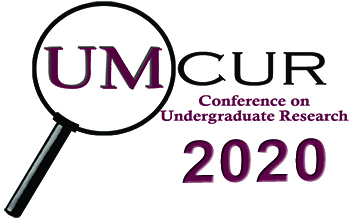Project Type
Presentation
Faculty Mentor’s Full Name
Kaetlyn Cordingley
Faculty Mentor’s Department
Davidson Honors College
Abstract / Artist's Statement
We are submitting a proposal to the City of Missoula that details our plan on providing additional support for the Crisis Intervention Team (CIT), through the implementation of two data collectors. Through working with the program QUEST (Questions for Undergraduates Exploring Social Topics), we researched the issue of drug addiction in Missoula. This research included meeting with government officials who were previously tasked with leading the CIT, utilizing information from various accredited databases, and consulting expert faculty members at the University of Montana. The Crisis Intervention Team (CIT) is a nationally adopted program intended to improve first responder interactions in many mental health and addiction based crises. The CIT has demonstrated efficacy in keeping those with mental illnesses and drug abuse issues out of jail and into more treatment based curriculums. In January 2020, the City of Missoula accepted a grant that created a full-time director position to lead the CIT. Until this point, it was solely run by volunteers. Although this is a step in the right direction, there is a lack of foundational support for this single position. The purpose of the data collectors would be to both support the new director, and to collect essential data that can potentially be used to expose the CIT to more funding. Data collection in other locations has revealed the capability of CIT to aid addiction and mental health crises, and we want data from Missoula to reflect this national standard.
Category
Social Sciences
Facing the Addiction Crisis in Missoula: Emergency Intervention and Data Collection
We are submitting a proposal to the City of Missoula that details our plan on providing additional support for the Crisis Intervention Team (CIT), through the implementation of two data collectors. Through working with the program QUEST (Questions for Undergraduates Exploring Social Topics), we researched the issue of drug addiction in Missoula. This research included meeting with government officials who were previously tasked with leading the CIT, utilizing information from various accredited databases, and consulting expert faculty members at the University of Montana. The Crisis Intervention Team (CIT) is a nationally adopted program intended to improve first responder interactions in many mental health and addiction based crises. The CIT has demonstrated efficacy in keeping those with mental illnesses and drug abuse issues out of jail and into more treatment based curriculums. In January 2020, the City of Missoula accepted a grant that created a full-time director position to lead the CIT. Until this point, it was solely run by volunteers. Although this is a step in the right direction, there is a lack of foundational support for this single position. The purpose of the data collectors would be to both support the new director, and to collect essential data that can potentially be used to expose the CIT to more funding. Data collection in other locations has revealed the capability of CIT to aid addiction and mental health crises, and we want data from Missoula to reflect this national standard.
